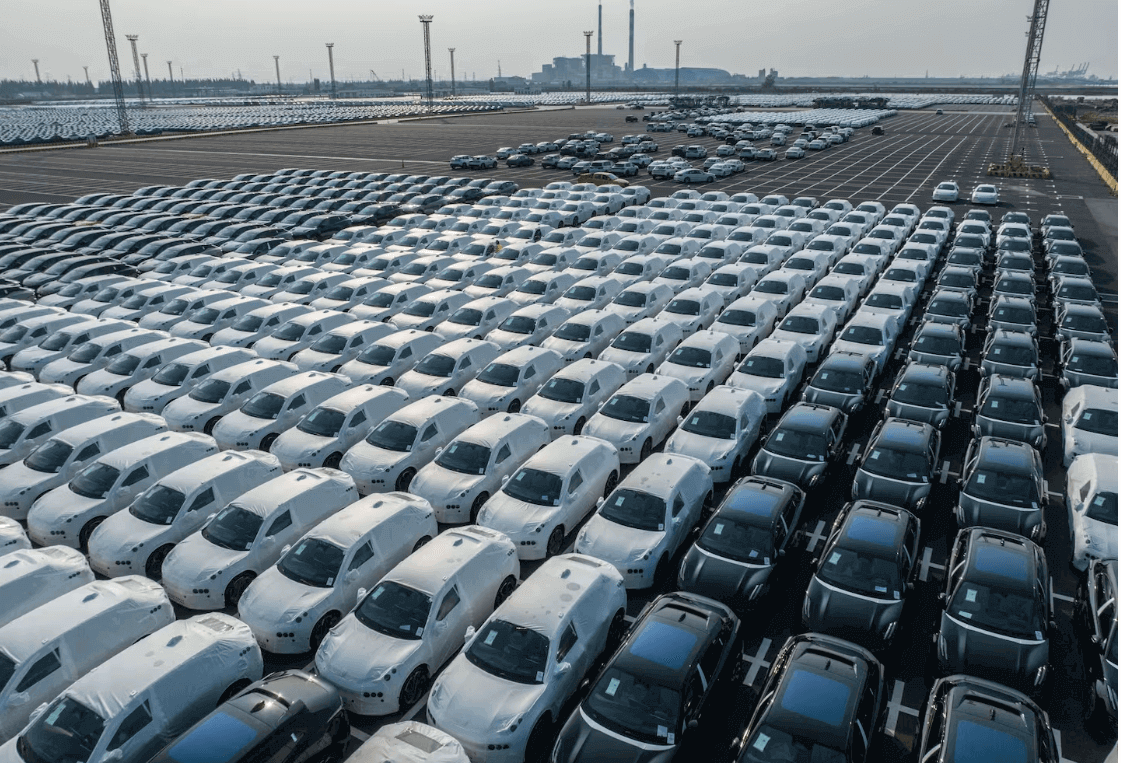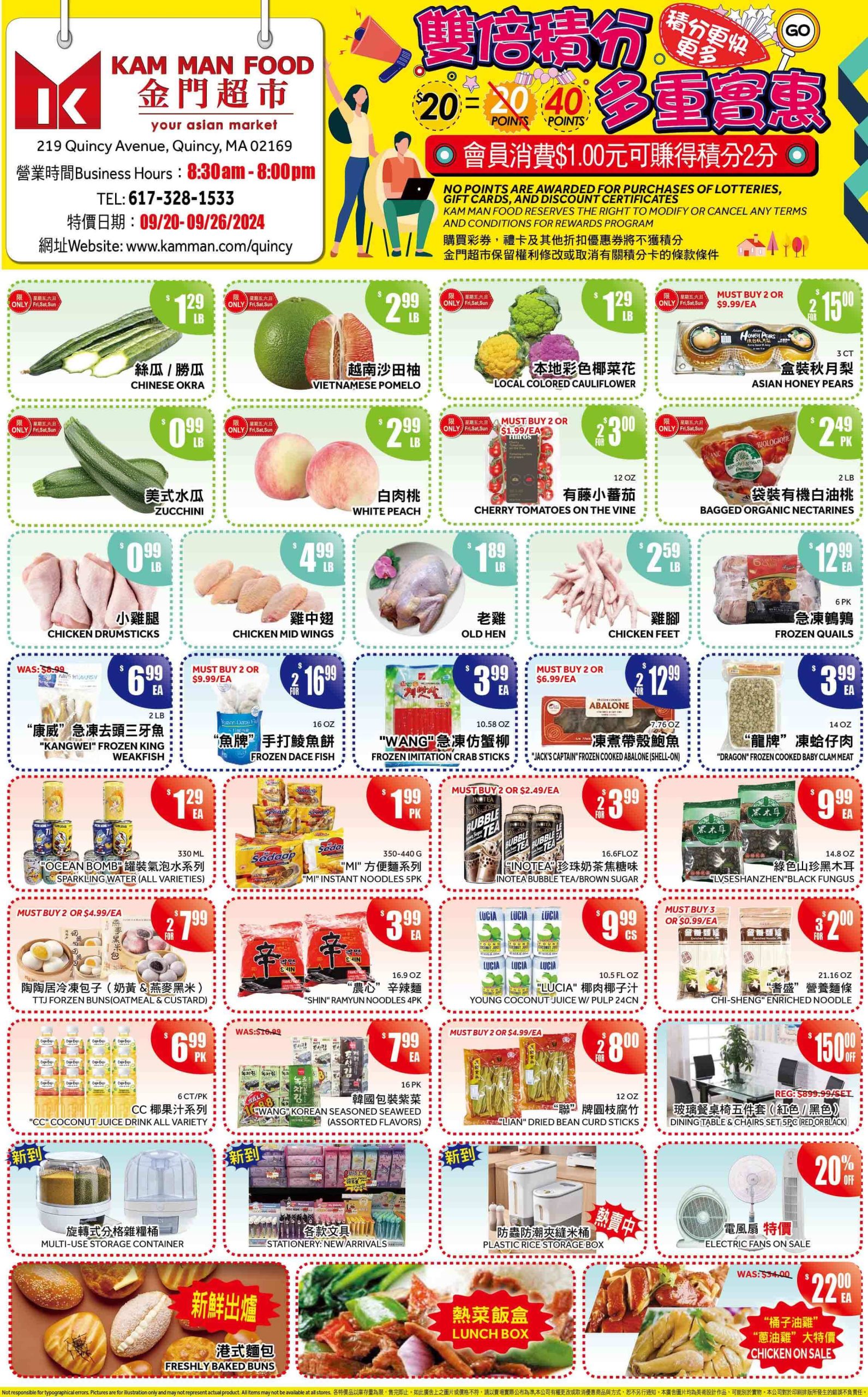拜登政府加大对中国商品的关税

【中美创新时报2024 年 9 月 14 日编译讯】(记者温友平编译)拜登政府周五(13日)宣布将对价值数百亿美元的中国产品征收关税,此举旨在保护美国工厂,并在总统大选前展现对华强硬态度。《纽约时报》记者Ana Swanson 和 Jordyn Holman 对此作了下述详细报道。
关税从 7.5% 到 100% 不等,将适用于服装、太阳能电池板、电动汽车、注射器、钢铁和其他中国一直以比许多美国企业便宜得多的价格出售的商品,有可能使美国工厂倒闭。
这些举措可能会提高一些进口产品的成本,而此时美国人已经对物价上涨感到不满。但它们也代表了拜登政府为解决一些选民关注的一个突出政治问题而做出的重大努力:美国对中国一系列产品的依赖。
民主党和共和党都不再强调自由贸易的好处,而是批评中国进口产品在掏空美国制造业和损害以这些工厂为中心的社区方面所起的作用。本周,副总统卡马拉·哈里斯与前总统唐纳德·特朗普就关税影响发生争执,共和党议员提出了几项旨在减少中国经济影响力的新法律。
拜登政府提出的一项措施将大幅限制一项名为“最低限度”的贸易规则,该规则允许去年超过 10 亿件来自中国的包裹进入美国而不受现有关税的约束。政府表示,根据该规则大量发货已经损害了美国制造商,并允许芬太尼和假冒商品等产品进入美国。
贸易规则允许包裹从国外直接运送到消费者或企业而无需支付关税,只要每件货物每天不超过 800 美元。新提案将取消多种产品的豁免,并可能对 Shein 和 Temu 等中国商品的大型出口商产生重大影响,这两个在线市场已成为美国购物者的热门。
“最低限度运输的急剧增加使得针对和阻止进入美国的非法或不安全货物变得越来越困难,”白宫负责国际经济的副国家安全顾问 Daleep Singh 表示。
“我们正在确保外国公司尊重我们的法律,不会危及美国家庭,”Singh 补充道。
拜登政府周五还公布了一份期待已久的评估报告,评估了特朗普政府自 2018 年以来对价值 3000 多亿美元的中国商品征收的关税。
这份长达 187 页的报告得出结论,特朗普的关税有效地减少了美国受到中国有害贸易行为的影响,应该维持这些关税。报告发现,这些关税促使中国采取措施取消一些有害政策,尽管报告称此类计划仍然存在。
报告还称,关税促使美国公司将采购业务转移到中国以外。中国在美国进口中的总份额从 2017 年的 21.6% 下降到 2023 年的 13.7%。
作为评估的一部分,拜登政府表示将对来自中国的其他产品增加或提高关税,包括电动汽车、电池部件、医用手套、石墨、半导体和其他商品。这些征税将于9月27日生效。拜登政府在5月份提出了其中一些额外关税,但本周的报告最终确定了这些措施以及对钨和太阳能产品征收额外关税的提议。
美国贸易代表凯瑟琳·泰在一份声明中表示,这些关税将“针对中华人民共和国继续影响美国工人和企业的有害政策和做法”。
中国驻华盛顿大使馆发言人刘鹏宇在一份声明中表示,这些关税是“单边主义和保护主义的产物”。
他说:“中方坚决反对这种做法,将采取一切必要措施维护自身权益。”
信息技术产业委员会(ITIC)是一家科技公司的贸易协会,该委员会表示,对芯片和其他电子产品征收额外的关税将“导致全球供应链更加混乱和不稳定”。
该委员会表示,拜登政府“一再驳回行业对经济影响和供应链弹性的担忧,转而支持征收更多关税”。
鉴于哈里斯批评前总统对华政策,将特朗普的关税正式化并增加新关税的决定可能会让她陷入困境。特朗普曾表示,如果当选,他将寻求对中国征收更高的关税——高达 60%——以及对从其他国家进口的产品征收 10% 至 20% 的关税。哈里斯抨击这一想法是“国家销售税”。
在本周的辩论中,特朗普指出拜登政府也采取了类似的贸易政策,他说:“她现在要接受我的理念了。事实上,我本来打算送她一顶‘让美国再次伟大’的帽子。”
民主党试图在区分其贸易政策与共和党政策方面取得谨慎的平衡,同时也试图吸引那些欣赏特朗普更激进贸易方式的选民。
拜登政府对特朗普对华关税的审查耗时两年多,引发了拜登官员之间的争论。一些人主张降低某些商品的关税,以减轻美国消费者的价格。但他们的意见被其他人否决,他们表示,美国不能容忍减少对中国的贸易惩罚。
拜登政府对电动汽车和其他产品征收的额外关税将涵盖 180 亿美元的中国进口产品。目前尚不清楚该提案将涵盖多少贸易,以弥补最低限度漏洞,但这一变化似乎适用于美国最低限度进口的很大一部分,去年总额为 545 亿美元。
该措施将在公众意见征询期后最终确定,将取消根据多项法律条款对任何受关税影响的产品的最低限度待遇,包括特朗普和拜登政府用来对全球金属、外国太阳能电池板和大量中国产品征收关税的条款。该政府表示,这些关税计划至少涵盖了美国进口总额的 40% 以及中国纺织品和服装进口的 70%。
最低限度条款源于一项百年历史的贸易法,最初旨在用于那些过于琐碎而不需要美国海关官员审查的货物。
但近年来,像 Shein 这样的在线公司——以及亚马逊上的一些中国商品卖家——利用这项条款在美国获得市场份额,将廉价服装和其他物品直接从中国工厂运送到消费者家门口。除了绕过关税外,这些公司还可以省去在美国仓储的成本。
根据联邦统计数据,2023 年,根据最低限度规则进入美国的包裹数量达到 10 亿多件,而十年前这一数字为 1.4 亿件。进口商不必向美国海关和边境保护局提供与其他包裹一样多的信息,这引发了人们对该局已成为毒品和不安全产品渠道的担忧。
据海关总署称,中国是此类包裹的最大来源国,发送量超过所有其他国家的加起来。
众议院共和党人本周曾讨论过在针对中国的一揽子法案中提出限制最低限度运输的立法,但最终未能就一项措施达成一致。近年来,众议院和参议院两党的立法者都提出了严厉打击最低限度运输的立法。
在周三致拜登政府的一封信中,100 多名民主党议员敦促其“充分利用”其权力来限制最低限度运输。
周五,密苏里州共和党众议员杰森·史密斯 (Jason Smith)和筹款委员会主席,为这项政策承担了责任。他说,拜登的规则反映了共和党代表提出并于今年由委员会通过的一项法律。
“他们说模仿是最高形式的奉承,”他说,“所以我很高兴华盛顿的民主党人再次承认共和党对华强硬贸易政策是有效的。”
零售业领袖协会是一个包括家得宝、塔吉特、美元通用等公司的贸易组织,它称赞了这一举措,称这将保护“美国消费者和处于弱势的美国公司”,并帮助当局阻止不合规或危险的商品进入美国。
Shein 和 Temu 都表示,虽然他们使用了最低限度,但这并不是他们成功的核心。Temu 的一位发言人表示,该公司愿意接受有利于消费者的改变。
Shein 执行主席唐纳德·唐 (Donald Tang) 周四接受采访时表示,他“非常乐意接受”最低限度豁免的结束。只要它存在,“我们就会利用这个渠道,”他说。但如果取消了,“我们就会找到不同的方式来满足我们的客户。”
民主党议员和拜登政府都表示,国会需要采取进一步行动,更全面地取消最低限度豁免。
包括美国商会和联邦快递、UPS 等托运人在内的团体反对议员提出的最低限度豁免的修改。代表主要进口商进行游说的全国对外贸易委员会 (National Foreign Trade Council) 认为,取消最低限度将给海关和边境保护局带来更多工作,而对阻止非法物质进入美国没有多大作用。
“唯一的结果就是加税,”该组织国际供应链政策高级主管约翰·皮克尔 (John Pickel) 说。
6 月份发布的一项经济研究发现,完全取消最低限度关税将给美国消费者带来 120 亿至 140 亿美元的损失。
该研究的作者、耶鲁大学经济学家 Amit Khandelwal 表示,取消最低限度关税的成本将不成比例地落在低收入人群身上,他的研究表明,低收入人群从中国购买的商品比富裕群体更多。
“国内零售商、国内生产商显然会从对这些进口产品征税中受益,”他说。“但这是有代价的,而且这种代价往往更难看到。”
本文最初发表于《纽约时报》。
题图:电动汽车即将在中国江苏省的一个港口装运。彭博社
附原英文报道:
Biden administration ratchets up tariffs on Chinese goods
By Ana Swanson and Jordyn Holman New York Times,Updated September 14, 2024
Electric vehicles bound for shipment at a port in Jiangsu Province, China.Bloomberg
WASHINGTON — The Biden administration on Friday announced measures that will add tariffs to Chinese products worth tens of billions of dollars, a move intended to protect U.S. factories and project a tough-on-China approach before the presidential election.
The tariffs, which range from 7.5% to 100%, will apply to clothing, solar panels, electric vehicles, syringes, steel and other goods that China has been selling at far cheaper prices than many U.S. businesses, threatening to put U.S. factories out of business.
The steps are likely to raise the cost of some imports at a time when Americans are already dissatisfied with rising prices. But they also represent a major effort by the Biden administration to address a salient political issue for some voters: America’s dependence on China for an array of products.
Both Democrats and Republicans have turned away from emphasizing the benefits of freer trade to criticizing the role that Chinese imports have played in hollowing out U.S. manufacturing and damaging the communities centered around those factories. This week, Vice President Kamala Harris sparred with former President Donald Trump over the impact of tariffs, and Republican lawmakers proposed several new laws aimed at reducing China’s economic influence.
One of the measures the Biden administration proposed would drastically limit a trade rule, called de minimis, that allowed more than 1 billion packages from China to enter the United States last year without being subject to existing tariffs. The administration said a flood of shipments under the rule had hurt U.S. manufacturers and allowed products like fentanyl and counterfeit goods to come into the country.
The trade rule allows packages to be shipped from foreign countries directly to consumers or businesses without paying tariffs, as long as the shipments do not exceed $800 per recipient per day. The new proposal would strip that exemption from a wide array of products and is likely to have a significant impact on large exporters of Chinese goods such as Shein and Temu, two online marketplaces that have become popular with American shoppers.
“The drastic increase in de minimis shipments has made it increasingly difficult to target and block illegal or unsafe shipments coming into the U.S.,” said Daleep Singh, the deputy White House national security adviser for international economics.
“We’re making sure foreign companies respect our laws and don’t endanger American families,” Singh added.
The Biden administration Friday also published a long-awaited review of the tariffs that the Trump administration placed on more than $300 billion worth of Chinese goods beginning in 2018.
The report, which runs to 187 pages, concluded that the Trump tariffs had been effective in reducing U.S. exposure to harmful trade practices from China and that they should be maintained. It found that those tariffs had encouraged China to take steps toward eliminating some of its harmful policies, though the report said such programs continue to exist.
The report also said that the tariffs contributed to U.S. companies shifting their sourcing out of and away from China. China’s overall share of U.S. imports fell to 13.7% in 2023 from 21.6% in 2017.
As part of the review, the Biden administration said it was adding or increasing tariffs on additional products from China, including electric vehicles, battery parts, medical gloves, graphite, semiconductors and other goods. Those levies will go into effect Sept. 27. The Biden administration put forward some of these additional tariffs in May, but this week’s report finalized those measures as well as proposed additional levies on tungsten and solar products.
Katherine Tai, the U.S. trade representative, said in a statement that the tariffs would “target the harmful policies and practices of the People’s Republic of China that continue to impact American workers and businesses.”
Liu Pengyu, the spokesperson for the Chinese Embassy in Washington, said in a statement that the tariffs were “the product of unilateralism and protectionism.”
“China firmly opposes this and will take all necessary measures to safeguard its own rights and interests,” he said.
The Information Technology Industry Council, a trade association for technology firms, said the additional tariffs on chips and other electronics would “cause more disruption and instability in global supply chains.”
The Biden administration “has repeatedly dismissed industry concerns regarding economic impacts and supply chain resilience in favor of more tariffs,” it said.
The decision to formalize Trump’s tariffs and add new ones could put Harris in a tricky position, given her criticism of the former president’s approach to China. Trump has said that, if elected, he would seek to impose even higher tariffs on China — as much as 60% — as well as a 10% to 20% tariff on imports from other countries. Harris has blasted that idea as a “national sales tax.”
At this week’s debate, Trump noted that the Biden administration had adopted similar trade policies, saying, “She’s going to my philosophy now. In fact, I was going to send her a MAGA hat.”
Democrats have tried to strike a careful balance in distinguishing their trade policy from that of Republicans while also trying to appeal to voters who appreciate Trump’s more aggressive trade approach.
The Biden administration’s review of Trump’s China tariffs, which took more than two years, spurred a debate among Biden officials. Some argued for reducing certain tariffs on goods as a way to ease prices on American consumers. But they were overruled by others who said the United States could not countenance decreasing trade penalties on China.
The Biden administration’s additional tariffs on electric vehicles and other products will cover $18 billion of Chinese imports. It is not clear exactly how much trade will be covered by the proposal to close the de minimis loophole, but the change appears to apply to a substantial portion of U.S. de minimis imports, which totaled $54.5 billion last year.
That measure, to be finalized after a public comment period, would eliminate de minimis treatment for any product subject to tariffs under several legal provisions, including those that the Trump and Biden administrations have used to levy tariffs on global metals, foreign solar panels and a vast array of products from China. Those tariff programs cover at least 40% of overall U.S. imports as well as 70% of Chinese textile and apparel imports, the administration said.
The de minimis provision stems from a century-old trade law and was originally intended for shipments that would be too trivial to require scrutiny from U.S. customs officials.
But in recent years, online companies like Shein — and some sellers of Chinese goods on Amazon — have used the provision to gain market share in the United States, shipping cheap clothing and other items directly from Chinese factories to consumers’ doorsteps. In addition to bypassing tariffs, the companies can eliminate costs for warehousing in the United States.
The number of packages entering the United States each year under the de minimis rule reached more than 1 billion in 2023, compared with 140 million a decade ago, according to federal statistics. Importers do not have to provide as much information to U.S. Customs and Border Protection as with other packages, creating concerns that it has become a conduit for drugs and unsafe products.
China is by far the biggest source for such packages, sending more than all other countries combined, according to the customs agency.
House Republicans had discussed taking up legislation to limit de minimis shipments in a package of bills targeting China this week, but they ultimately could not agree on a measure. In recent years, lawmakers of both parties in the House and the Senate have proposed legislation to clamp down on de minimis shipments.
In a letter to the Biden administration Wednesday, more than 100 Democratic lawmakers urged it to use “the full range” of its authorities to limit de minimis shipments.
On Friday, Rep. Jason Smith, R-Mo. and chair of the Ways and Means Committee, claimed credit for the policy. He said that the Biden rule mirrored a law proposed by a Republican representative and passed by the committee this year.
“They say imitation is the highest form of flattery,” he said, “so I am pleased Democrats in Washington are once again acknowledging that Republicans’ tough-on-China trade policy works.”
The Retail Industry Leaders Association, a trade group that includes Home Depot, Target, Dollar General and others, praised the move, saying it would protect “American consumers and disadvantaged American companies” as well as help authorities keep noncompliant or dangerous goods from entering the United States.
Both Shein and Temu have said that while they use de minimis, it is not core to their success. A Temu spokesperson said the company was open to changes that helped consumers.
Donald Tang, executive chair of Shein, said in an interview Thursday that he would be “very happy to embrace” the end of de minimis. As long as it is there, “then we’re going to use the channel,” he said. But if it is eliminated, “then we’re going to find different ways to satisfy our customers.”
Both Democratic lawmakers and the Biden administration have suggested that Congress will need to take further action to shut down the de minimis exemption more fully.
Groups including the U.S. Chamber of Commerce and shippers like FedEx and UPS have opposed the changes to de minimis proposed by lawmakers. The National Foreign Trade Council, which lobbies on behalf of major importers, has argued that getting rid of de minimis would create more work for Customs and Border Protection and not do much to stop illegal substances from entering the United States.
“The only outcome here is that it’s a tax increase,” said John Pickel, the organization’s senior director of international supply chain policy.
An economic study released in June found that eliminating de minimis entirely would result in costs of $12 billion to $14 billion for American consumers.
An author of that study, Amit Khandelwal, an economist at Yale University, said the costs of repealing de minimis would fall disproportionately on lower-income people, who his research showed were purchasing more from China than wealthier groups.
“Domestic retailers, domestic producers, they obviously would benefit from taxing these imports,” he said. “But there is a cost, and the cost is often harder to see.”
This article originally appeared in The New York Times.

